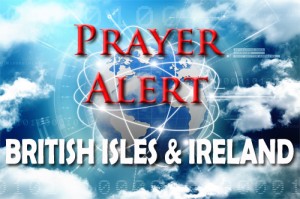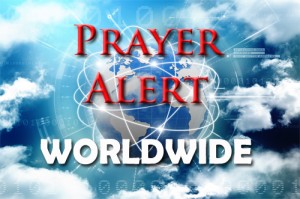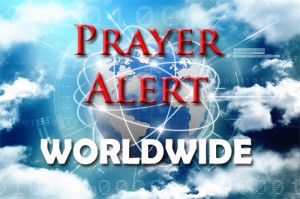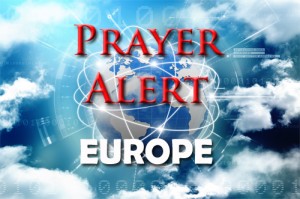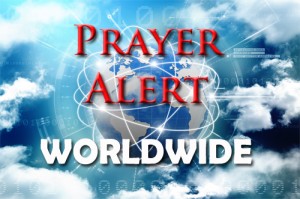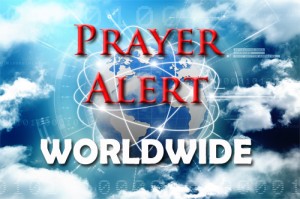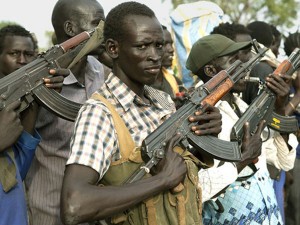Displaying items by tag: conflict
Armistice centenary celebrated
On 11 November 1918, the Armistice was signed, bringing an end to the First World War. Big Ben sounded in Parliament Square to ring in the news as thousands gathered to celebrate, sparking three days of jubilation across Britain. Prime minister Lloyd George told the House of Commons, ‘I hope we may say that thus, this fateful morning, came an end to all wars.’ The national mood was not exclusively joyous. Wounded veterans met the news in silence, reflecting on a victory that had cost so many lives. Over the next two years, 5,000 war memorials were erected in towns and villages, as reminders of the past and warnings to future generations not to repeat the mistakes of history. This year, appropriately, Armistice Day coincides with Remembrance Sunday. The two-minute silence will commence at precisely 11 am, marking exactly 100 years to the second since the war came to an end.
Nigeria: Archbishop’s mediation in violent region
In January Archbishop Justin Welby tweeted his sadness about the killings and displacements in Nigeria. Writing to the country’s primate, Nicholas Okoh, he offered to contribute towards negotiating peace. He has now repeated that offer, saying, ‘My condolences go to those who have lost loved ones and property. I urge the authorities to seek for ways to ameliorate their sufferings and losses. I call on all people of goodwill to continue to pray for the peace of Nigeria. I mourn with this great country and stand with them in prayer. I once again exhort President Buhari and other authorities, civil and religious, national and international, to build a coalition to end this violence immediately.’ Since January 175,000 people have been displaced by fighting in Benue State and are now living in refugee camps.
Lebanon: Middle East Shakeup
Lebanon has a delicate shared power tradition of a Maronite Christian President and Sunni Muslim Prime Minister. On 5th November Prime Minister Saad Hariri suddenly disappeared, fearing assassination and turned up in Saudi Arabia, claiming he is free and will soon return to Lebanon. His sudden resignation coincides with an aggressive purge of rivals by Saudi Crown Prince Mohammed bin Salman in his anti-corruption drive. Iran backs Hezbollah, who play a dominant role in Lebanese politics. There is heightened tension between Iran and Saudi Arabia. Hariri ‘said’ he hoped his resignation was a positive shock between the nations. Many doubt the authenticity of the statement; fearing Lebanon's crisis will set the stage for a Middle East calamity. Christians usually suffer in these regional conflicts. Windows International are asking people to pray for: -truth and transparency to emerge as Lebanon and other countries seek answers to Hariri's strange disappearance; -Prime Minister Saad Hariri and his family’s safety and freedom of movement.
Crimea: human rights crimes
The UN has accused Russia of committing grave human rights violations in Crimea. There is a need for accountability. Russia annexed the peninsula from Ukraine in 2014, after that country's leader was overthrown. The UN report has documented random arrests, detentions, disappearances, torture, and at least one execution. There have been ‘intrusive law enforcement raids of private properties’, and the human rights situation has ‘significantly deteriorated’, with hundreds of prisoners illegally transferred from Crimea to Russian jails. Civil servants have been forced to renounce their Ukrainian citizenship or face losing their jobs, and Moscow has replaced Ukrainian laws with Russian ones. Education in Ukrainian has all but disappeared from Crimean schools. There was no immediate response from Russia to the report's accusations.
Ongoing conflict in CAR
The mayor of a town in Central African Republic (CAR) said on 21 June that over a hundred people are dead after heavy fighting broke out, despite a peace agreement signed recently in Rome. Also, several dozen wounded have been brought to the hospital run by aid group Doctors Without Borders. However, the local Catholic mission says the death toll could be higher because it has been too dangerous for Red Cross teams to recover bodies from the streets. CAR is a country teetering on the edge of becoming a failed state. Half a million of the country's people have fled to neighbouring nations; a similar number are huddled in squalid camps inside CAR, dependent on food aid and the protection of UN peacekeepers and 900 French troops. CAR has faced fighting since 2013, when predominantly Muslim Seleka rebels seized power in the capital city, Bangui. Anti-Balaka militias, mostly Christians, fought back, resulting in thousands of people being killed. The peace deal signed on 19 June between nearly all the country's armed groups had called for an immediate cease-fire.
Russia: a divided people
On 8 March celebrations began for the centenary of the Russian revolution; they will continue for one year. Revolution brought education to those at the bottom of the social pile, while destroying the middle class. Conflicting rich v poor views continue today. Last Sunday Alexei Navalny, an anti-corruption and opposition activist, called on his supporters to protest, and accused prime minister Dmitry Medvedev of personal enrichment through embezzlement. The biggest rally of 8,000 people in Moscow was unsanctioned, and 600 were detained. 3,000 demonstrated in St Petersburg (131 detained), 500 in Vladivostok (25 detained), 1,500 in Novosibirsk, and others elsewhere. Many believe that Russia and democracy are incompatible, and that 2017 will reunite Russians to a legacy of revolutions that continues to divide. See http://www.independent.co.uk/voices/russian-revolutions-1917-centenary-celebrations-2017-vladimir-putin-bolsheviks-lenin-stalin-trotsky-a7605791.html
South Sudan conflict: 'ethnic cleansing'
1 December 2016 BBC News
“Ethnic cleansing is taking place in war-torn South Sudan, the country's UN human rights commission has warned.
It says it has observed starvation, the burning of villages and rape being used as weapons of war across the country.
The three-member commission, which was established earlier this year, has just completed a 10-day visit to South Sudan, which has been blighted by conflict for more than three years.
President Salva Kiir has denied that ethnic cleansing is taking place.
In a statement released on Thursday, the commission says "the stage is being set for a repeat of what happened in Rwanda" in 1994 - a reference to the killing of 800,000 people, mostly Tutsis and moderate Hutus, in the space of three months.
Yasmin Sooka, the chair of the commission, said that everywhere the team went in South Sudan, it "heard villagers saying they are ready to shed blood to get their land back".
South Sudan's civil war has caused more than 2.2 million people to flee their homes. It began in 2013, two years after South Sudan became independent, when President Salva Kiir sacked his cabinet and accused Vice-President Riek Machar of instigating a failed coup.
Government and rebels agreed to attend peace talks in 2014, and a deal was signed a year later.
Mr Machar eventually returned from exile to be reinstated as first vice-president of a new unity government under Mr Kiir in April 2016.
However he was again sacked months later after renewed conflict.”
http://www.bbc.co.uk/news/world-africa-38174754
Please pray with our Sudanese brothers and sisters in Christ for an end to his conflict and for His peace and restoration to return to this troubled land. Pray that Satan, the ultimate genocidal killer, is bound and that tribal leaders will become peacemakers that can agree on a way forward that will avert the danger of genocide, bringing healing and blessing to both tribes.
